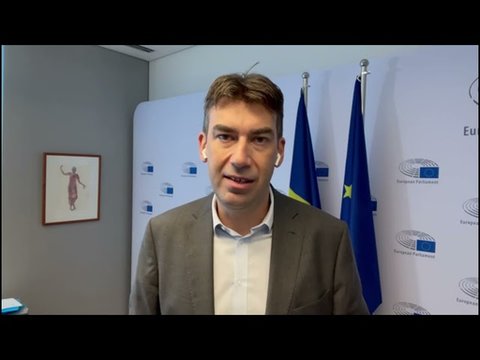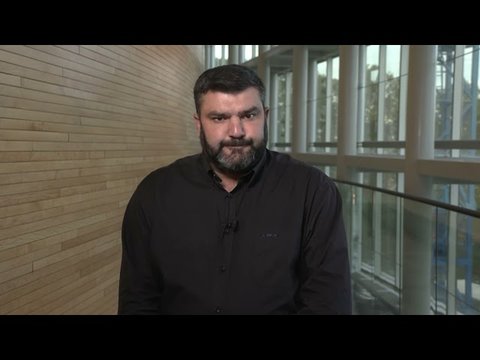of smartagrihubs
The magnitude
155+
Digital Inovation Hubs
9
Regional
Clusters
7
Sectors
28
Flagship
Innovation
Experiments
The Magnitude
OF SMARTAGRIHUBS
Members of the European Parliament (MEP) are actively taking part in the legislative process. We invited four MEPs to share with us their insights on agricultural and digital EU policy.
Interviews
The SmartagriHubs slogan is "Connecting the dots in the agri-tech network" - it made sense for us to bring the questions from our community to European policymakers! In this section you will find 2 written contributions, answering questions collected on the Forum of the Innovation Portal. The 2 video contributions were collected during our event, co-organized with the European Parliament, "How will technology bring back young people to rural areas?". Enjoy!
Maria Walsh, Member of the European Parliament
Ireland – European People’s Party
read all
Tom Vandenkendelaere, Member of the European Parliament
Belgium – European People’s Party
read all
Jérémy Decerle
Member of the European Parliament
France - Renew Europe Group
read all
Dragos Tudorache
Member of the European Parliament
Romania - Renew Europe Group
read all
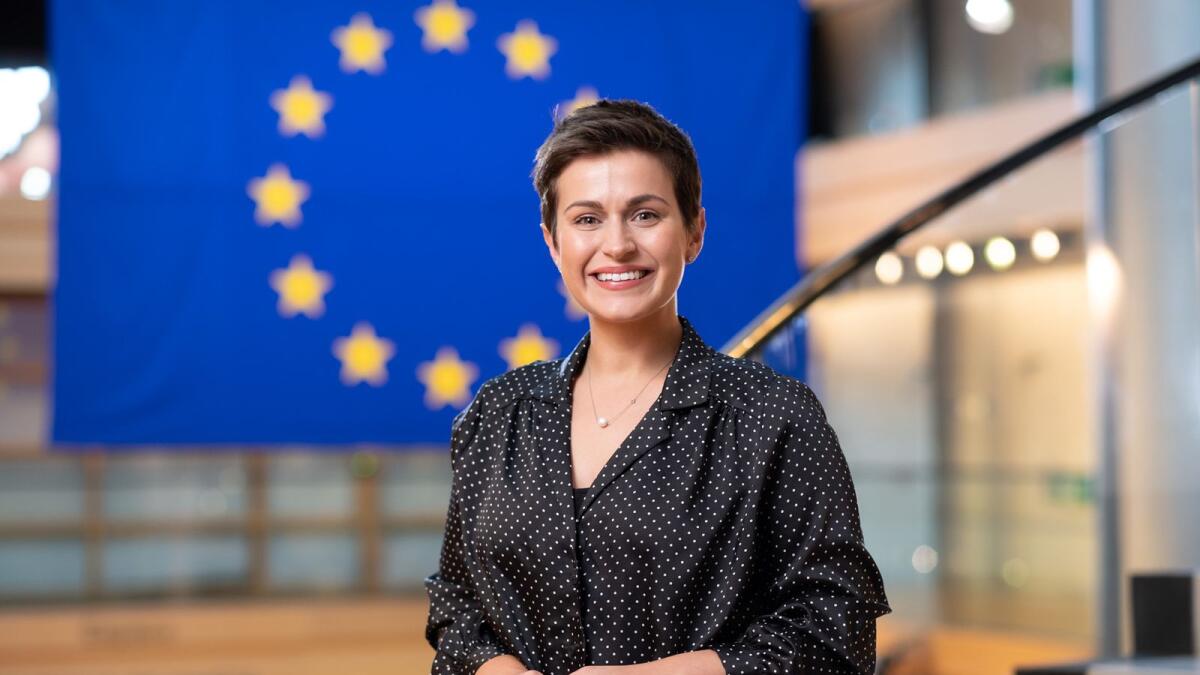
Maria Walsh, Member of the European Parliament
Ireland – European People’s Party
With the digitisation/digitalisation of EU agriculture, data is becoming a resource by itself. There are currently some negotiations around the Digital Governance Act to facilitate data sharing in the Internal Market. Could you tell us more about the impact of this act on farmers and tech developers in the EU, and what would be the challenges and opportunities for these sectors?
The Data Governance Act defines the rules for trading data, including smaller actors. It will increase trust in data sharing, strengthen mechanisms to increase data availability and provide a mechanism for re-using public-sector data. The regulation on data governance will be a powerful engine for innovation and new jobs whilst increasing production and productivity. Technology has helped farmers with reducing risk, improving resilience and helping with decision making processes. Digital Agriculture is expected to make agricultural value chains more efficient, while helping communities adapt to and mitigate the effects of climate change and enabling a more efficient use of natural resources.
However, lack of inclusiveness remains an ongoing concern. Farmers in general, and smallholder farmers in particular, feel that they are not the ones who are seeing the benefits of digital technologies. As a small farmer in rural Ireland myself, I understand the difficulties some farmers have with the digitalization of the working world. These feelings of exclusion discourage farming communities from fully adopting digitization and the benefits that accompany it. This also ties into my European Parliament file on “Mental Health in the Digital World of Work”. Our farmers are placed under extraordinary pressure and as a MEP for the Midlands North-West, I need to make sure that I provide a platform and voice for the small farmers in my constituency. In addition to feeling excluded - farmers have concerns about who controls the data they produce. Only if trust and fairness are guaranteed, data sharing can flourish and stimulate new business models and social innovation.
Good data management and data sharing will enable industries to develop innovative products and services, and will make many sectors of the economy more efficient and sustainable. With regards to the agricultural sector, the DGA will help us with environmental data: to combat climate change, reduce CO₂ emissions, and fight emergencies, such as floods and wildfires. It will help us in developing precision farming, new products in the agri-food sector and new services in rural areas. These innovations will be key to rural development, which is a topic I am passionate about given my constituency.
Digital innovation and new technologies have a major role to play in making EU agriculture more sustainable. Many policies rely on them to reach the environmental goals of the EU Green Deals. In your opinion, how the EU policymakers could further support digital innovation in agriculture to allow the new technologies to re-lease their potentials in the Just Transition?
EU policymakers can further support digital innovation in agriculture through funding & education. The Commission has set up large-scale pilots to drive the digitalisation of agriculture in Europe. Developing digital farming platforms, agricultural machine builders, and smart water management systems has demonstrated the strong role emerging digital solutions can play in supporting farmers on the ground. Under the Horizon 2020 programme, approximately €1 billion of EU funding was made available for research and innovation. This will help with supporting digital innovations in the agricultural sector.
Advancements in technology help the ‘physical labour’ aspects to the ‘men vs women’ debate. I follow Alice Hodges aka “The Calf Girl” on Instagram who uses social media to shed a light on her physical and technological world of dairy through her work as a relief milker and contract rearer. Working within the Parliament, advancements in equality by the Commission, but unfortunately I don’t see the same level of commitment from national and local authorities. This needs to change. We need to work on access to education; agriculture programs, and access to develop our practical skill sets. More online training via Macra na Feirme and Skillnet are incredibly important in encouraging more women into the sector. And, of course, if we want to see change as women, we need to speak out and be seen; ‘if you can not see it, you can not be it’.
I speak with farmers on a weekly basis, and follow on social media many farmers. The young farmers are making waves on social platforms sharing alternative farming enterprises and have grown successful food production businesses. This type of development should be championed and encouraged, and feeds directly into some of the offerings in the eco-schemes being proposed in the new Common Agricultural Policy. Too often there is a narrative that farming is only environmentally damaging and this is not the case. A majority of our farmers are continuously educating and upskilling in best practices to protect not just what’s above the ground but also what is under it. Investment in providing education on alternative farming practices and alternative methods in protecting our biodiversity are vital.
The European Commission is currently working on the Chip Act. Access to semi-conductor materials is crucial for the future of the digitisation/digitalisation of the EU agricultural sector. What is the position of the European Parliament on this initiative, and what can be expected from it?
Europe’s need for chips will double in the next decade. Which is why we need to raise Europe’s game on the development, production and use of this key technology. The European Chips Act should cover three dimensions: First, we need to design a strategy to push the research ambitions of Europe to the next level while preserving our interests. Secondly, we must regularly monitor our industrial supply chains, anticipate possible future disruptions, and ensure the resilience of our entire supply chain including design, production, packaging, equipment and suppliers such as producers of wafers. Thirdly, the idea is not to simply produce everything on our own here in Europe. We need to focus on making our local production more resilient, we need to design a strategy to diversify our supply chains in order to decrease overdependence on a single country or region. And while the EU aims to remain the top global destination of foreign investment in high-level technology, through the European Chips Act we will also put the right conditions in place to preserve Europe’s security of supply.
There are many policies on the EU agenda 2022 that are relevant for the Agri-Tech sector. In your opinion, which will be the most important to monitor and why?
I am focused on utilizing technology to tackle long standing agricultural policy issues within our farming community. For example, we know that rural isolation and mental health continues to be a significant issue. In Ireland, the figures are alarming, around half of our farmers are affected by anxiety and depression, and farmers are three times more likely to die by suicide than any other occupation. In 2021, I highlighted the need to ring-fence funding to expand the Make the Moove rural mental health initiative, established by Irish voluntary rural youth organisation, Macra na Feirme, to support our farming sector and their mental health. In 2022, they have enhanced their training by developing an eLearning module for participants of the programme. This simple connection between agri and tech allows us to reach our most west periphery in Ireland and promotes social inclusion, poverty reduction and economic development in an innovative manner.. Two of the biggest policies to watch on the EU-level are:
Horizon Europe is the EU’s key funding programme for research and innovation with a budget of €95.5 billion. It tackles climate change, helps to achieve the UN’s Sustainable Development Goals and boosts the EU’s competitiveness and growth. The programme facilitates collaboration and strengthens the impact of research and innovation in developing, supporting and implementing EU policies while tackling global challenges. It supports creating and better dispersing of excellent knowledge and technologies. It creates jobs, fully engages the EU’s talent pool, boosts economic growth, promotes industrial competitiveness and optimises investment impact within a strengthened European Research Area.
Technological development, implemented by the CAP is essential for Rural community development. Farmers need machinery, buildings, fuel, fertilisers and healthcare for their animals, the farming and food sectors together provide nearly 40 million jobs in the EU. To operate efficiently and remain modern and productive, farmers need ready access to the latest information on agricultural issues, farming methods and market developments. During the period 2014-20, the resources of the CAP were directed towards providing high-speed technologies, improved internet services and infrastructure to 18 million rural citizens – the equivalent of 6.4% of the EU’s rural population.

Tom Vandenkendelaere,
Member of the European Parliament
Belgium – European People’s Party
With the digitisation/digitalisation of EU agriculture, data is becoming a resource by itself. There are currently some negotiations around the Digital Governance Act to facilitate data sharing in the Internal Market. Could you tell us more about the impact of this act on farmers and tech developers in the EU, and what would be the challenges and opportunities for these sectors?
Trust is a key issue to roll out data collection and data sharing. That’s why the EU Data Act and the Digital Governance Act are so important because they work with trusted third parties that will collect and share data. This is crucial to foster trust in the farming community.
I think digitalisation in the agricultural sector comes with a lot of opportunities. For AI to work well, a lot of data is needed. Think of the use of drones to take images of your field, in order to be able to apply very targeted crop protection via precision agriculture or to see where there should be more water. The more data we have, the better the analysis of these images will become. In turn this can lead to more precise farming methods in the future.
One of the main challenges is to get all these technologies and innovations to the farmer. We have to reach all farmers across the range; bigger farmers, smaller farmers, remote farmers, family farmers.... Young innovative farmers who have for example a background in bio-engineering might find it easier to take up these new technologies. But it’s important for all farmers to get the opportunities to apply these technologies, given that the average age of farmers in Europe is very high.
Digital innovation and new technologies have a major role to play in making EU agriculture more sustainable. Many policies rely on them to reach the environmental goals of the EU Green Deals. In your opinion, how the EU policymakers could further support digital innovation in agriculture to allow the new technologies to re-lease their potentials in the JustTransition?
Certainly, through technology farming can be made more circular. Processing residuals and waste products from the farm that can then be used in turn to generate heat and electricity are a way of increasing the circularity of farming. Another good example is the use of pocket digesters that can make heat and electricity from manure. The challenge is to put a policy framework in place that creates incentives. The challenge is to valorise as much as possible and make investments worth their money. It would for example help to be able to use residual products, here ammonium sulfate, as a fertilizer, which is not yet recognized by European legislation.
Precision agriculture is another good example that can boost circularity. It can help to reduce inputs like pesticides, water consumption and fertiliser use. By using AI systems very precisely we can in turn better estimate the food quality of products. In this way food waste can be prevented. In addition, AI can correctly interpret large amounts of data, allowing more targeted and faster selections that lead to a better crop. Accelerating the breeding process can result in more robust crops that are better able to survive intense droughts.
The European Commission is currently working on the Chip Act. Access to semiconductor materials is crucial for the future of the digitisation/digitalisation of the EU agricultural sector. What is the position of the European Parliament on this initiative, and what can be expected from it?
I am in favour of the European Chips Act. The proposal is expected to be tabled in the coming days. It fits the European Parliament’s priority to increase Europe’s strategic autonomy in terms of stepping up our production and innovation capacity and to keep up with the global competition. Only 8% of chips are currently produced in Europe. Asia, specifically Taiwan, is in the lead with 75% of the production of the chips worldwide. With the EU Chips Act, Europe wants to quadruple production and increase its share to 20% worldwide by 2030. The aim is to bring together a wide variety of sectors such as agriculture, defence, energy, biopharma, space industries and so on together in a single new structure that can rely on the expertise of research centres such as IMEC in Belgium or Fraunhofer Institute in Germany, financially backed by Europe. The idea is to pool resources so that major chip manufacturers can work together to develop the next generations of chips and sensors and boost Europe’s competitive edge in this field.
There are many policies on the EU agenda 2022 that are relevant for the Agri-Tech sector. In your opinion, which will be the most important to monitor and why?
The use of artificial intelligence will impact the future of farming so I will closely monitor the AI Act. With AI technology, we can move to a farming model that will be much more targeted in the future. This is not only good for the climate, the environment, sustainability but it is also more time and cost-efficient for the farmer and guarantees more success at higher quality. However, I think we also need to look beyond the AI Act. I believe that we should dare to incorporate technology in every proposal under the farm-to-fork strategy. Whether it's pesticide reduction, stopping food waste or organic farming, we need to bet on technology and innovation in every bill and policy area. Bits and bytes will shape the future of farming, so much is clear.
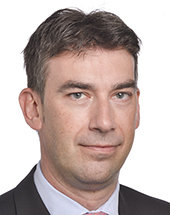
Dragos Tudorache
Member of the European Parliament
Renew Europe Group
Romania
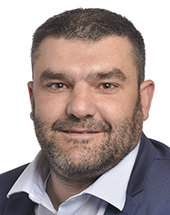
Jérémy Decerle
Member of the European Parliament
Renew Europe Group
France
